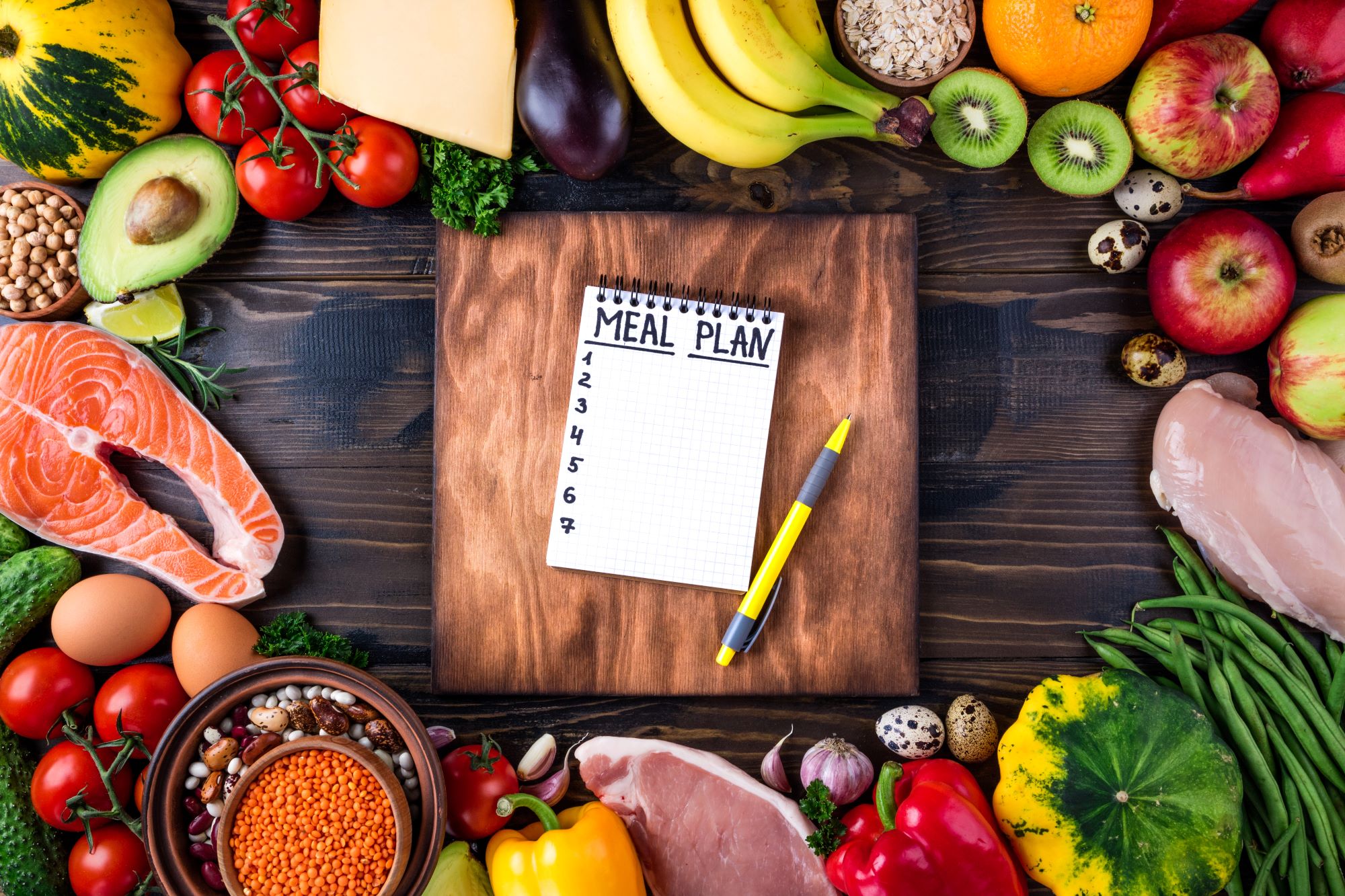Welcome to the first stride of your half marathon eating plan week before the race. As you taper your training, it’s crucial to optimize your nutrition to ensure your body is primed for peak performance. This week is not only about maintaining your fitness but also about making smart dietary choices that will support your hard-earned training. Proper fueling is key to your success.
The food you consume this week will be the building blocks for your energy reserves come race day. A balanced half marathon eating plan includes a mix of carbohydrates, proteins, and fats, along with adequate hydration. Carbohydrates are your main source of energy and should take precedence in your meals, but it’s also important not to neglect protein for muscle repair and fats for sustained energy. With a focus on wholesome, unprocessed foods, you’ll keep your energy levels steady and your stomach settled as you count down to the big day.
As you embark on this journey, remember that Run Just For Fun is here to guide you every step of the way. From personalized nutrition advice to hydration strategies, we’ll ensure you cross that finish line feeling strong. Visit our website to learn more and get started today! Click here.
Carb Loading Strategy for Endurance Running
As race day approaches, runners often hear about the importance of carb loading to maximize glycogen stores—the body’s preferred source of energy during extended periods of exercise. While it’s a strategy primarily associated with marathons, it’s equally pertinent for half marathon runners aiming to maintain consistent energy levels throughout the 13.1 miles.
Starting about three to four days before the event, increase your carbohydrate intake to about 8 to 10 grams of carbs per kilogram of body weight. This doesn’t mean you should binge on pasta the night before; rather, gradually increase your carb intake with each meal to avoid digestive discomfort. Focus on complex carbohydrates like whole grains, oats, and sweet potatoes that provide not only the necessary glucose but also fiber, vitamins, and minerals.
It’s also crucial to balance your macronutrients. While carbs are the star player in your half marathon eating plan, don’t sideline proteins and fats. Lean proteins support muscle repair, and healthy fats ensure you have a reserve of long-lasting energy. Remember to stay hydrated as well, as water is necessary for glycogen storage. By implementing a thoughtful carb loading strategy, you’ll set the stage for a race where endurance meets excellence.
Hydration Tactics for the Week Before Your Race

Hydration is a critical component of your half marathon eating plan week before the race, and it demands as much attention as your nutrition. In the days leading up to the race, it’s essential to implement effective hydration tactics to ensure your body is well-prepared for the demands of endurance running.
Start by increasing your fluid intake; aim for at least 3 liters of water per day, though this can vary based on your body size and the climate you’re in. Incorporate hydrating foods like cucumbers, watermelon, and oranges into your diet. These foods contribute to your overall fluid intake while also providing essential vitamins and minerals.
While water should be your primary source of hydration, you can also include electrolyte-enhanced drinks. These are especially beneficial if you’re training in hot weather or sweating more than usual. They help maintain the balance of electrolytes, which are crucial for muscle function and preventing cramps. However, be mindful of drinks with high sugar content, as they can lead to spikes and crashes in energy levels.
Finally, monitor the color of your urine to gauge your hydration status—it should be a pale straw color. Dark urine can indicate dehydration, while completely clear urine may suggest overhydration, which can be just as dangerous. As you taper your training down, continue to prioritize hydration to ensure your muscles are primed and your body is in peak condition for race day.
Balancing Proteins and Fats in Your Pre-Race Diet

A strategic balance of proteins and fats is key to optimizing your half marathon eating plan week before the event. While carbs are often spotlighted for their energy-boosting capabilities, proteins and fats play vital supporting roles in your pre-race diet.
Proteins are the building blocks of muscle repair and growth, which is crucial in the week leading up to your half marathon. You should aim for a moderate intake that supports muscle recovery without overwhelming your digestive system. Including a variety of lean proteins such as chicken, fish, tofu, and legumes in your meals can help achieve this balance. Ideal protein consumption could be around 1.2 to 1.4 grams per kilogram of body weight daily, although individual needs may vary.
Fats, on the other hand, are essential for long-term energy reserves, supporting cell function, and aiding in the absorption of fat-soluble vitamins. In the week before your race, focus on healthy fats found in foods like avocados, nuts, seeds, and olive oil. The goal is not to increase fat intake significantly but to ensure that the fats you consume are high quality and integrated into your meals in moderate amounts.
Remember to avoid drastically changing your diet or trying new foods in the week before your race, as this could disrupt your digestion and negatively impact your performance. Instead, continue with the balanced diet that has supported your training, paying close attention to the quality and timing of protein and fat intake to ensure your body is well-fueled and ready to go on race day.
Essential Vitamins and Minerals for Runners

For runners, especially those in the final week before a half marathon, ensuring an adequate intake of essential vitamins and minerals is crucial for peak performance. These micronutrients play significant roles in energy production, muscle contraction, and recovery, making them indispensable in your half marathon eating plan week before the race.
Key vitamins such as B-complex are vital for converting food into energy. Foods rich in B-vitamins include whole grains, eggs, dairy products, and leafy greens. Vitamin D, obtained from sunlight exposure and fortified foods, supports bone health and immune function, while Vitamin C, found in citrus fruits, broccoli, and bell peppers, helps with the repair of tissues and the absorption of iron.
Minerals like iron, which is found in red meats, spinach, and legumes, are essential for runners because they help with the transportation of oxygen in the blood. Calcium and magnesium, found in dairy products, nuts, and seeds, are necessary for bone health and muscle function. Electrolytes such as sodium, potassium, and chloride, which are lost through sweat, should be replenished to maintain fluid balance and prevent cramping.
Adequate hydration complements the intake of these vitamins and minerals. While water is fundamental, incorporating electrolyte-rich sports drinks can also be beneficial to maintain electrolyte balance, particularly during long training sessions. By ensuring these essential micronutrients are included in your diet, you will support your body’s overall function and be well-prepared for the demands of a half marathon.
Putting It All Together: Sample Meal Plans

As you approach race day, it’s time to put it all together with a sample meal plan that incorporates all the nutritional guidelines we’ve discussed. This plan is designed to optimize your energy levels, ensure proper hydration, and prepare your body for the exertion of a half marathon. Remember, it’s crucial to personalize your intake based on your specific dietary preferences and needs.
Here’s a day-to-day breakdown of meals and snacks for the week before your event:
- Monday to Wednesday: Focus on complex carbohydrates like oatmeal or whole grain toast for breakfast, a quinoa salad with vegetables and lean protein for lunch, and grilled salmon with sweet potato and steamed broccoli for dinner. Hydrate well and snack on fruits, nuts, and yogurt.
- Thursday: Begin to increase your carbohydrate intake. Add a banana to your breakfast, a whole grain wrap for lunch, and include an extra serving of brown rice at dinner.
- Friday: Maintain high carbohydrate intake with pasta dishes, rice bowls, and potatoes. Keep protein and fats moderate, and continue to hydrate.
- Saturday: Have a carbohydrate-rich breakfast and lunch, with a focus on familiar foods that you know are easy on your stomach. Dinner should be lighter and earlier in the evening to promote good sleep.
- Sunday (Race Day): Eat a simple, high-carb breakfast at least 2-3 hours before the race start to top off glycogen stores. Hydrate with water or a sports drink.
Each meal should be balanced, providing a mix of carbohydrates, proteins, and fats, along with essential vitamins and minerals. Adjust portion sizes according to your body’s hunger signals and energy needs. Don’t forget to visit our website to learn more and get started today! Click here.
As you tailor your half marathon eating plan week before the race, listen to your body and be ready to make adjustments. Good nutrition is your ally in achieving optimal performance. Let’s lace up those shoes and look forward to a successful race day!


